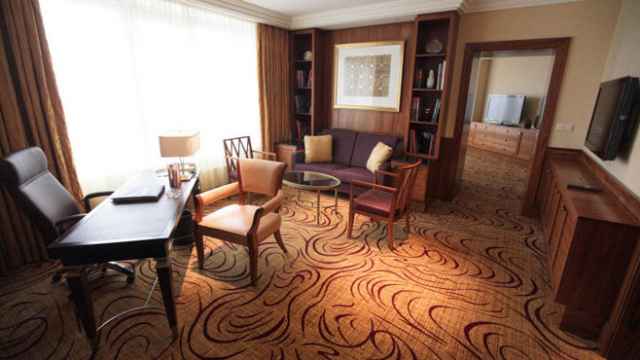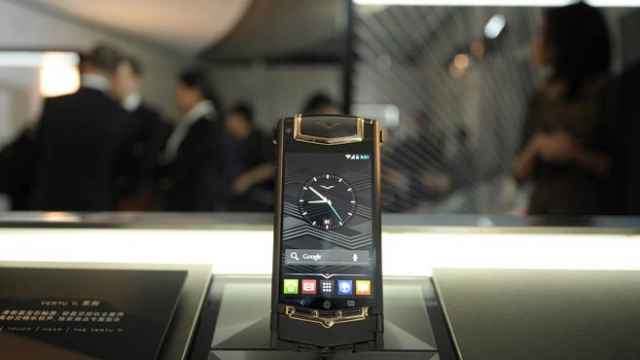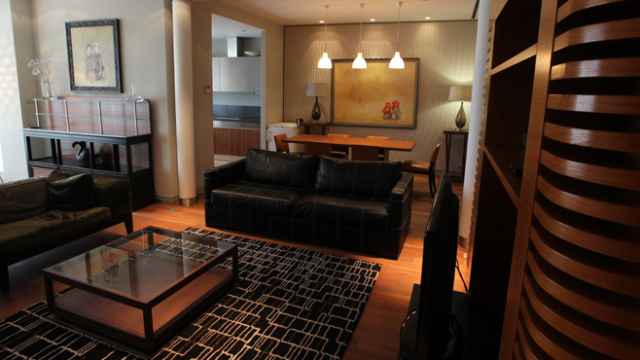PARIS — Spending by Russian tourists abroad has plunged, diving 51 percent in January after falling 44 percent in December because of the ruble's freefall, according to figures released by tax-refund company Global Blue.
The ruble, which lost 40 percent against the euro last year, has crippled demand from Russians for luxury goods, and many labels are growing concerned the trend could last, with no end in sight for the conflict in Ukraine.
Several luxury brands, particularly Italian brands such as fashion label Salvatore Ferragamo, have been severely hit by the Russian economic crisis.
Last week, Jean-Francois Palus, No.2 at Gucci owner Kering, said the group's Italian tailor Brioni had witnessed a significant drop in sales to Russian tourists, adding that it looked as though "Russia has entered into a severe recession."
Russians, who until last year ranked second after the Chinese by spending, make up 5-7 percent of the total luxury goods market.
"The Russian luxury market is made by relatively few consumers with very high discretionary spending power, as epitomized by the 'Russian oligarch'," said Luca Solca, a luxury goods analyst at Exane BNP Paribas.
"These consumers have higher exposure to high-end versus accessible luxury brands and categories … such as Brioni and Cartier."
Global Blue said Russian spending had been in decline for more than a year, having dropped nearly 17 percent in 2014.
Broker Barclays said in a note published on Friday that the trend reflected "the weakness of the ruble and ratcheting up of international sanctions against Russia."
Global Blue said Chinese spending rose 34 percent in January after a 49 percent jump in December, however. The 2014 increase was 18.3 percent.
Many Chinese tourists come to Europe to buy luxury goods such as 700-euro ($791) Louis Vuitton handbags, which can be 40 percent cheaper than in places such as Hong Kong. However, a growing number of Chinese now also shop in Korea, Singapore and Japan.
In Europe, where tourist spending can account for over half of sales at luxury brands like Cartier in cities such as Paris, London and Milan, total tourist spending fell 1.5 percent in January, Global Blue said. Overall tourist spending rose 4.3 percent last year, versus 10.1 percent in 2013.
The figures, based on VAT refund applications, do not take into account the United States, Hong Kong and Dubai, where VAT refund services do not apply.
A Message from The Moscow Times:
Dear readers,
We are facing unprecedented challenges. Russia's Prosecutor General's Office has designated The Moscow Times as an "undesirable" organization, criminalizing our work and putting our staff at risk of prosecution. This follows our earlier unjust labeling as a "foreign agent."
These actions are direct attempts to silence independent journalism in Russia. The authorities claim our work "discredits the decisions of the Russian leadership." We see things differently: we strive to provide accurate, unbiased reporting on Russia.
We, the journalists of The Moscow Times, refuse to be silenced. But to continue our work, we need your help.
Your support, no matter how small, makes a world of difference. If you can, please support us monthly starting from just $2. It's quick to set up, and every contribution makes a significant impact.
By supporting The Moscow Times, you're defending open, independent journalism in the face of repression. Thank you for standing with us.
Remind me later.





